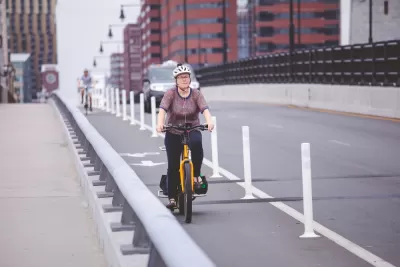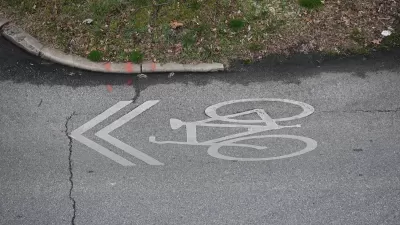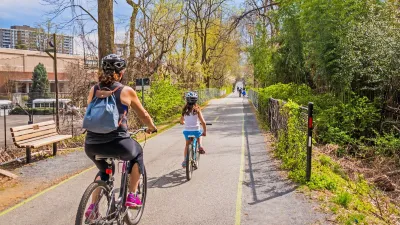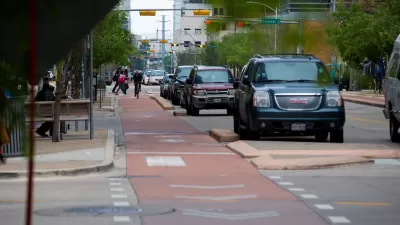The League of American Bicyclists ranks states based on bike infrastructure and safety efforts.

The League of American Bicyclists issued its list of most bike-friendly states, with Washington and Massachusetts topping the list. The top five are rounded out by Oregon, California, and Minnesota.
As Dan Zukowski explains in Smart Cities Dive, “The League ranked states on the basis of five actions it advocates every state to take, said the organization’s policy director, Ken McLeod. These are centered around bicycle infrastructure, safety, funding, planning and laws.”
The report assesses state-owned roads, which see the highest number of fatalities for people biking and walking. “The biggest difference between the best-ranked states and those at the lower rungs is whether they have specific planning around bike safety and update their plans every 10 years,” McLeod said.
While most states are still spending less than 2 percent of federal transportation funds on bike and pedestrian infrastructure, New Hampshire improved its ranking by spending more than 2 percent and creating a new bike plan. “The report calls out Kansas for improving its ranking more than any other state and three states — Maine, Oklahoma and South Carolina — for adopting or planning to adopt their first statewide bike plans.”
FULL STORY: The 5 most ‘bicycle-friendly’ states

Alabama: Trump Terminates Settlements for Black Communities Harmed By Raw Sewage
Trump deemed the landmark civil rights agreement “illegal DEI and environmental justice policy.”

Planetizen Federal Action Tracker
A weekly monitor of how Trump’s orders and actions are impacting planners and planning in America.

The 120 Year Old Tiny Home Villages That Sheltered San Francisco’s Earthquake Refugees
More than a century ago, San Francisco mobilized to house thousands of residents displaced by the 1906 earthquake. Could their strategy offer a model for the present?

The Five Most-Changed American Cities
A ranking of population change, home values, and jobs highlights the nation’s most dynamic and most stagnant regions.

USDOT Repeals Emissions Monitoring Rule
A Biden-era regulation required states to report and plan to reduce transportation-related emissions.

CaBi Breaks Ridership Record — Again
Washington D.C.’s bike share system is extremely popular with both residents and visitors.
Urban Design for Planners 1: Software Tools
This six-course series explores essential urban design concepts using open source software and equips planners with the tools they need to participate fully in the urban design process.
Planning for Universal Design
Learn the tools for implementing Universal Design in planning regulations.
Clanton & Associates, Inc.
Jessamine County Fiscal Court
Institute for Housing and Urban Development Studies (IHS)
City of Grandview
Harvard GSD Executive Education
Toledo-Lucas County Plan Commissions
Salt Lake City
NYU Wagner Graduate School of Public Service





























